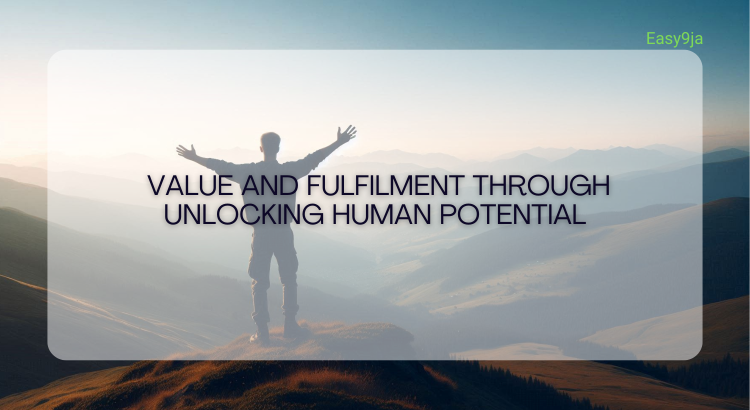As we navigate the complexities of modern society, it is essential to redefine our understanding of human value and potential. Beyond mere productivity, we must recognise the intricate factors that enable individuals to thrive. This requires a holistic approach, integrating social environment, individual agency, and diverse value recognition.
Several philosophers have long emphasised the importance of human dignity, freedom, and flourishing. Amartya Sen Capability Approach highlights the significance of social and economic opportunities in unlocking potential. Jean-Paul Sartre’s Existentialism stresses individual responsibility and agency, while Aristotle’s Virtue Ethics focuses on cultivating virtues and character traits.
It is important to note that competitive pressures and technological advancements can lead to redundancy, threatening human value. To mitigate this, we must implement adaptive ecosystems that foster lifelong learning, innovation, and entrepreneurship. This enables individuals to evolve and adapt, ensuring their contributions remain valuable.
A supportive social environment is crucial, alongside inclusive education, healthcare, and social services which provide the foundation for growth and development. Empowering individuals to explore passions and interests which aligns with their values lead to authentic fulfilment. By recognising the importance of social and economic opportunities, we can create a society that truly values human potential.
To achieve this vision, policymakers and individuals must work together. Holistic education should focus on skill diversification and lifelong learning, preparing individuals for an ever-changing world. Progressive taxation and social welfare programs can ensure economic security, while community engagement initiatives foster volunteerism and social connections. Furthermore, responsible AI development must prioritise human-centred design and ethics, ensuring technological advancements serve more of humanity.
There are some examples that demonstrate the effectiveness of these principles. Nordic countries’ social welfare systems prioritise human well-being, while Germany’s vocational training and apprenticeships foster adaptability. Likewise, Singapore’s lifelong learning initiatives ensure continuous skill development, empowering individuals to thrive in a rapidly evolving economy.
Finally, unlocking human potential requires a multifaceted approach. By integrating enabling social environment, individual agency, and recognition of diverse value, we can create a society that fosters inclusive growth and development, empowers individuals to pursue authentic fulfilment, celebrate diverse contributions and strengths, and adapt to changing circumstances through lifelong learning.
As we strive for a more compassionate, resilient world, let us recognise the inherent value and potential within every individual. By doing so, we unlock the collective potential of humanity, leading to a brighter future for all.
